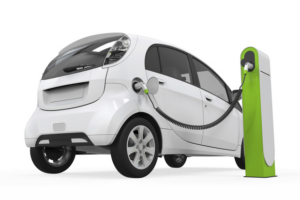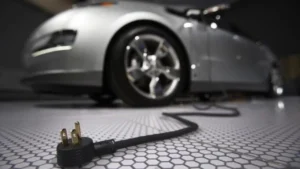Pakistan’s electric vehicle (EV) market is expected to increase significantly due to government initiatives and rising public awareness of environmentally friendly technologies. The following are major developments and trends influencing Pakistan’s EV industry going forward:
The high cost of conventional cars, the dearth of EV infrastructure, and the high cost of power are obstacles to Pakistan’s promising future for EVs. Pakistan may hasten the switch to electric vehicles with the appropriate investments, incentives, and policies.
The adoption of electric cars (EVs), driven by environmental concern and technical developments, is signaling the start of a new era in the global automotive industry. The switch to electric mobility in Pakistan, where traditional cars are expensive and EV infrastructure is still developing, demonstrates
Government Incentives:
To encourage the use of electric cars, the Pakistani government has implemented incentives and legislation. These include of tax breaks, exemptions from import duties, and financial aid for EV producers and consumers.
Infrastructure Development
Infrastructure investment for EV charging is essential to the expansion of the EV market. Major cities are starting to build charging stations, which will make EV ownership more convenient.

Local Manufacturing: Local manufacturing of EVs can lower prices and increase accessibility. Collaborations between foreign electric vehicle enterprises and regional producers are anticipated to enhance output and novelty.
Environmental Benefits: A growing number of people are choosing green technology as they become more conscious about pollution and climate change. Electric cars are an environmentally beneficial substitute for conventional combustion engines since they emit no pollution.
Technological Advancements:
EVs are become more economical and efficient thanks to advancements in battery technology. Longer battery life and quicker charging periods add to the allure of electric cars.
Market Growth:
The auto sector in Pakistan is progressively adopting electric cars. additional models and brands are hitting the market in response to growing customer demand, giving them additional choices.
Economic Opportunities:
As the EV industry expands, new job possibilities arise in production and maintenance as well as in associated technology.
Public Awareness:
Consumer acceptance of EVs can be accelerated by expanding awareness campaigns and educational initiatives about their advantages. It is important to emphasize the advantages of technology, environmental effect, and cost savings.
With the EV industry expected to grow quickly, Pakistan’s future for EVs is bright. Adopting green technology promotes innovation and economic success in the Pakistani car sector in addition to supporting environmental aims.
Future Of Electric Cars in Pakistan: Prospects and Challenges
The auto industry and governments everywhere have launched a number of programs in the last ten years to lessen our carbon footprint and our steadfast need on fossil fuels. Fossil fuels have been necessary for human requirements for almost a century, ever since the invention of the motor vehicle. However, they are limited resources that we will eventually run out of. Automakers are searching for other energy sources to replace fossil fuels in the future that will meet our demands; at the moment, this alternative energy source appears to be electric power.
There are now three Japanese companies controlling the majority of the automobile industry in Pakistan. However, with the entry of three new manufacturers, their monopoly may soon come to an end. What impact, therefore, would the launch of an electric vehicle have on the market? As everyone is aware, Pakistan is now experiencing acute electrical deficit.
The main drawback of owning an electric automobile in Pakistan is the scarcity of energy. The largest challenge for owners of electric vehicles would be obtaining a consistent supply of energy. This would be compounded by the lengthy charging hours and load shedding, and it may take a very long time to fully charge an electric vehicle.
Advantages
It is obvious that the cost of just introducing electric vehicles and the necessary infrastructure would be unaffordable for the nation, but when considering this investment over time, it would help save money in crucial areas. Over time, the country’s oil imports would significantly decline, somewhat offsetting the impact of Pakistan’s steadily rising debt. For example, modern electric automobiles cost about PKR 1.8 per kilometer, compared to about PKR 4 for petrol and diesel vehicles. This means that transportation will become much more affordable for the majority of people.
The typical Pakistani has a difficult time affording the cost of spare parts for the majority of cars in the nation. Not only are the spare components
How Real Is the EV Revolution in Pakistan?
Since it is inevitable, it is real.Some of the world’s most polluted cities are located in Pakistan. And here, we’re discussing the Top 10. Between 1994 and 2015, Pakistan’s carbon emissions climbed by 123 percent; by 2030, they had grown by 300 percent.
Currently, transportation accounts for 46% of all carbon emissions.
Thus, the question is not whether, but when. According to Pakistan’s most recent Nationally Determined Contributions (NDCs), thirty percent of all new cars sold there would be electric by 2030.
Conclusion
In order to fully benefit from more affordable, sustainable, and eco-friendly transportation, collaboration between the public sector, businesses, and the government is required. By addressing these problems head-on, Pakistan can embrace a greener future while promoting economic expansion and energy independence.









